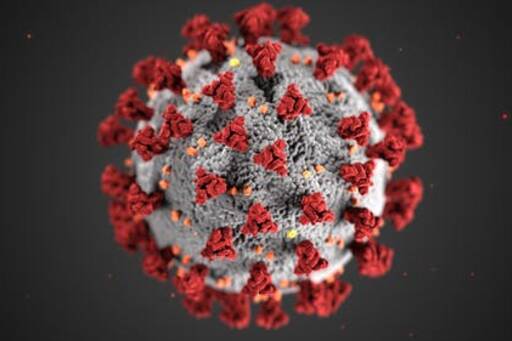Operating a Business During a Pandemic – Reducing Coronavirus-Related Liability

As stay-at-home order restrictions are gradually relaxed and California reopens, businesses in California face potential legal liability for illness and death caused by exposing clients and customers to the Coronavirus (also known as “COVID-19”). Already, numerous lawsuits have been filed against businesses whose operations have allegedly resulted in the illness or death of its customers and/or employees. Businesses operating during the pandemic should consider reducing their liability in the face of this potential litigation.
This article explores the actions a business may take to reduce their exposure to Coronavirus-related litigation, and the importance of a well-written liability waiver to reduce liability.
A Primer on Negligence
In California a negligence action requires a showing the defendant failed to use reasonable care to prevent harm to the plaintiff. Cal. Civ. Code § 1714(a). In comparison, “gross negligence” is defined as either: (a) an extreme departure from what a reasonably careful person would do in the same situation to prevent harm to oneself or to others; or (b) lack of any care. Eastburn v. Regional Fire Protection Authority (2003) 31 Cal.4th 1175, 1185-1186; Colich & Sons v. Pacific Bell (1988) 198 Cal.App.3d 1225, 1240, Kearl v. Board of Medical Quality Assurance (1986) 189 Cal.App.3d 1040, 1052-1053, 236; see also Council of California Civil Jury Instructions (“CACI”) 425 (“gross negligence” constitutes “the lack of any care or an extreme departure from what a reasonably careful person would do in the same situation to prevent harm to oneself or to others.” The “extreme departure” standard and the “want of even scant care” standard are alternatives, and only one is required. Kearl, supra, 189 Cal.App.3d 1053; Gore v Board of Medical Quality Assurance (1980) 110 Cal.App3d 184, 196-197).
Under California law, the concept of “gross negligence” is contrasted with intentional acts which the actor knows or should know will result in harm. Such conduct has been designated “wanton” or “reckless” misconduct. Donnelly v. Southern Pacific Co. (1941) 18 Cal.2d 863, 871. “Gross negligence falls short of a reckless disregard of consequences and differs from ordinary negligence only in degree and not in kind.” Colich & Sons, supra.
Step One – Operate Safely
Most importantly, a business operating during the Coronavirus pandemic should strive to comply with all mandated and recommended health and safety guidelines (see fn.1). In addition to potentially preventing a Coronavirus outbreak, if sued, a businesses’ compliance with health guidelines may demonstrate the “reasonable care” necessary to defeat a cause of action for negligence, or at a minimum, prevent a finding the business was negligent as a matter of law. See e.g., Haft v. Lone Palm Hotel, 3 Cal. 3d 756, 763 (1970) (“In failing to satisfy all of these mandatory safety requirements, which were clearly designed to protect the class of persons of which the victims were members, defendants of course were unquestionably negligent as a matter of law.”).
While in California compliance with health guidelines does not serve as an absolute bar to a claim for negligence, failure to comply with health guidelines may invite a lawsuit. It is conceivable the mere act of opening a business without sufficient masks or adequate social distancing rules would be sufficient to convince a jury a resulting Coronavirus-related illness or death was the result of a businesses’ negligence. And at least one California nursing home has already been sued based on allegations a nursing home client died from Coronavirus after the facility refused to allow staff to wear masks or gloves (see fn.2).
Step Two – Obtain Signed Liability Waivers
Businesses in California with known risks of injury or death traditionally require customers to sign liability waivers (also known as an assumption of risk agreement) prior to participation in potentially dangerous activities. These liability waivers are typically required for gyms (see fn.3), climbing walls (see fn.4), go cart racing (see fn.5), and other potentially dangerous activities.
In California, a properly drafted exculpatory contract releasing a party from liability for future ordinary negligence is valid and enforceable unless it is prohibited by statute or impairs the public interest, or is the result of fraud, overreaching, or excusable neglect. Tunkl v. Regents of University of California, 60 Cal.2d 92, 96, 98 (1963); Hulsey v. Elsinore Parachute Center, 168 Cal.App.3d 333, 339, 214 Cal. Rptr. 194 (1985) (“[I]n the absence of fraud, overreaching or excusable neglect, . . . one who signs an instrument may not avoid the impact of its terms on the ground that he failed to read the instrument before signing it.”).
For example, releases in the context of recreational sports or exercise facilities generally do not impair the public interest and are valid. Capri v. L.A. Fitness International, LLC, 136 Cal.App.4th 1078, 1084 (2006). A valid release precludes liability for risks of injury within the scope of the release. Paralift, Inc. v. Superior Court, 23 Cal.App.4th 748, 757 (1993). A release of liability for future gross negligence, in contrast, generally is unenforceable as a matter of public policy. City of Santa Barbara v. Superior Court, 41 Cal.4th 747, 750–751, 777 (2007).
Some businesses in California have already prepared liability waivers to attempt to reduce their Coronavirus-related liability from continued operations (see fns. 6, 7).
Step Three – Post Warning Signs with Required Safety Precautions
In California, the comparative fault doctrine allows the trier of fact to consider all relevant criteria in apportioning liability, and can consider the relative responsibility of the various parties for an injury in order to arrive at an equitable apportionment or allocation of the loss. Pfeifer v. John Crane, Inc., 220 Cal.App.4th 1270, 1285 (2013). If a plaintiff is partially responsible for his or her own harm, the damages award will be reduced by the plaintiff’s percentage of fault.
Thus, a business seeking to reduce its exposure for Coronavirus-related liability should consider posting prominent warning signs at all entrances which warn of the dangers of the Coronavirus, warn of the specific danger to individuals 65 years and older, and require as feasible the use of N95 masks, eye protection, and other safety precautions.
Conclusion
Coronavirus-related litigation is anticipated to become a major issue in the near-future, with Senate Majority Leader Mitch McConnell (R-Ky.) warning that not protecting business owners from lawsuits related to COVID-19 would “dramatically slow” the economic recovery (see fn.8). While Senator McConnell has indicated Republicans intend to propose a plan to reduce this liability, it would be prudent for businesses to address this liability directly.
Accordingly, businesses should consult with counsel to reduce Coronavirus-related liability, prepare Coronavirus liability waivers, and discuss other actions to reduce their Coronavirus-related liability. To the extent businesses have not already, businesses should consider reviewing existing contracts and form agreements to confirm businesses are not entering into new agreements which result in increased Coronavirus-related liability.
Footnotes:
- In California, this currently includes guidance from Cal/OSHA, the Centers for Disease Control and Prevention (CDC), the California Department of Public Health (CDPH), the State of California, and local counties. See e.g., https://covid19.ca.gov/pdf/guidance-office-workspaces.pdf
- https://www.latimes.com/california/story/2020-05-22/glendale-nursing-home-sued-after-resident-contracts-covid-19-and-dies
- See e.g., https://www.24hourfitness.com/company/policies/terms/terms_of_use.html
- See e.g., https://www.rei.com/pdf/legalforms/climbingwall.pdf
- See e.g., https://www.k1speed.com/wp-content/uploads/2018/09/Adult-Liability-Waiver-9-17-ALC.pdf
- See e.g., https://www.costamesacountryclub.com/wp-content/uploads/sites/7766/2020/05/Costa-Mesa_Golf-Waiver-Final-1.pdf
- See e.g., https://global-uploads.webflow.com/5b5e1754c3f7cb50734892a4/5e824af31dfa0b868dd74ed1_COVID-19%20Warning%20and%20Waiver.pdf
- See https://www.washingtonpost.com/us-policy/2020/05/03/congress-coronavirus-legal-liability/
 |
 |
|
|
Douglas W. Robinson, Partner Doug is a business litigation attorney |
Christopher J. Green, Associate Chris is a business litigation attorney |

